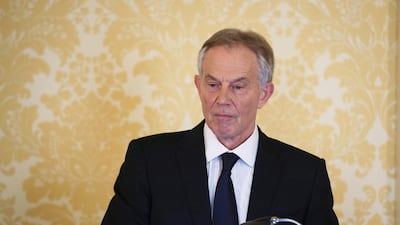There is a simple trick beloved of some TV interviewers which I think of as the “gotcha" game. When faced with a political leader or some other expert invited on television to discuss an important subject such as global warming, the future of the world economy or the prospects for Middle East peace, the interviewer asks a question designed to prove that the leader is out of touch. An example would be: “so, prime minister, you have plans to combat poverty, but can you tell me the price of a loaf of bread?”
Or, “yes, professor, your ideas to change the tax system may indeed benefit ordinary families, but how much does a litre of petrol cost these days?”
When the politician or professor stumbles, the usual follow up question is “if you don’t know the price of a loaf of bread / litre of petrol then how can we trust you to fix poverty / taxation / Middle East peace?”
The audience is left with the impression that the expert is somehow out of touch with real life and therefore his or her expertise is diminished. But when I hear interviewers resort to such tired stratagems, I always wonder why knowing the price of bread should make any expert any more credible about global warming, taxation, arms control or anything else. I have been waiting for the day when a leader responds: “Look, I know this is just a game of “gotcha!” and I’m not playing it. I’m here to talk about something serious.”
Well, that day is here. On British television recently the government minister responsible for school standards, Nick Gibb, was discussing his plans to improve maths teaching by insisting on more rigour in the way primary school children learn their multiplication tables. Now, we can agree or disagree whether this is a good idea. Some of the British teaching unions don’t think much of it. Perhaps they are right. But in "gotcha" mode a TV presenter asked Mr Gibb to tell him what eight times nine amounted to. Mr Gibb replied: “I’m not going to get into this. I’ve learned through bitter experience never to answer these kinds of questions on live television.” He was then asked why a school child should have to do multiplication sums which he himself was not prepared to do. Mr Gibb answered: “No eight-year-old or nine-year-old will be doing it on live television.” My heart cheered.
Politicians frequently engage in the politics of distraction. When asked a really difficult question they often raise some other unrelated matter. Donald Trump is a genius at this. When beleaguered by questions about the FBI inquiry into Russian manipulation of his election, school shootings or his attitude to women, Mr Trump tends to send inflammatory tweets about race, North Korea, mental health and other subjects which make distracting headlines. Good government is not served by the politics of distraction. But nor is an informed public served by the "gotcha" game, which amounts to the journalism of distraction. Was it really impossible for the TV presenters questioning Mr Gibb to do some research and find out in detail how effective the maths teaching he was suggesting might prove to be? Is it really so hard to telephone teaching unions, academics or education professionals and put their response, to quote statistics, to draw detailed comparisons with other countries?
The former British prime minister Tony Blair understood the potentially serious consequences of the "gotcha" game. At election time he would sit down with his aides and rehearse questions about the price of a kilo of lamb, a loaf of bread, a pint of milk. This did not make Tony Blair a better prime minister, but it did help him get elected as someone "in touch." And yet, as Mr Blair well knew, "gotcha" questions are often nonsensical. As prime minister he was not popping down to the corner shop in Downing Street (there isn't one) to buy a joint of lamb or a tin of beans. Government is not a TV game show. Real and incontrovertible facts about big decisions are what voters need, and without them voters react as some did just a few weeks before the referendum on Scottish independence in September 2014. Many voters claimed they did not have enough information about the costs and benefits of independence even though the campaign had been going on for two years. In truth there was plenty of information, but there was a shortage of information you could definitely trust beyond dispute.
And that’s where good journalism comes in. Journalists must do what many in Washington are doing brilliantly right now: draw attention to factual inaccuracies, lies, spin and deceit of some leaders. But journalists should expose lies by explaining the facts, not by merely trying to make politicians looks stupid through questions designed more to create entertaining television than genuinely to inform the public. Besides, when it comes to making politicians look stupid, many do not require any outside assistance.
Gavin Esler is a journalist, television presenter and author


